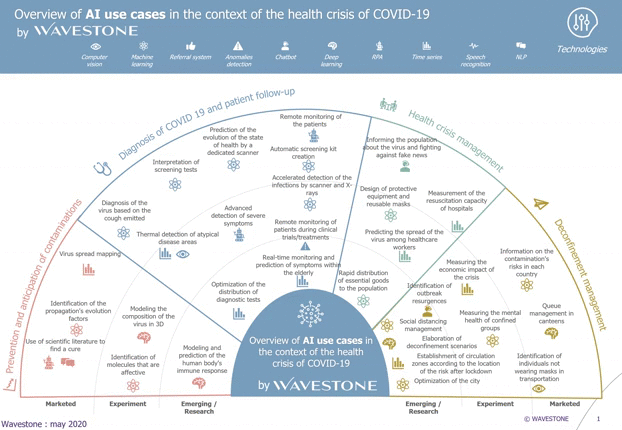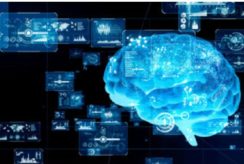In 2020, the health crisis caused by COVID-19 has put the functioning of our societies to the test. In France, as in many countries around the world, this resilience has been reflected in the research and solutions found to address all facets of the pandemic and its consequences on people’s daily lives.
Research and innovation : levers of the crisis
Among the key areas are research and innovation. Thus, on 19 March 2020, Emmanuel Macron and Frédéric Vidal announced the investment of 25 billion euros over ten years into public research. The United Kingdom, on it’s side, announced in March 2020 an increase in public investment in research and development, expected to reach £22 billion (about 24 billion euros) per year by 2024. 2 Finally, the European Commission has adopted a massive recovery plan of 750 billion euros, of which 5 billion will be earmarked exclusively for 3 research and innovation at European level.
The massive use of artificial intelligence
The crisis has therefore accelerated research, particularly on the use of artificial intelligence (AI) to get out of the health crisis as quickly as possible. Although technology may not be the only answer to the crisis, it helps to prevent contamination, can be real aid to crisis management and helps to think about life after the crisis.
The overview below aims to identify the use of artificial intelligence in the face of the health crisis in order to present the possibilities offered by AI. Use cases are categorized according to two overviews. On the one hand, a chronological overview of the health crisis, starting from the prevention of contamination, through to the diagnosis and follow-up of patients, by treating crisis management. This finally leads to the management of deconfinement. On the other hand, is an overview presenting the use case according to their degree of maturity (non-mature research axes, conclusive experiments, existing solutions on the market). The overview, therefore, gives a view of all the use cases and the different types of AI employed (deep learning, machine learning, computer vision, etc.).




